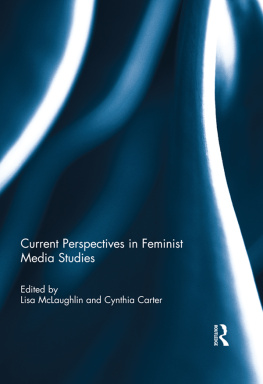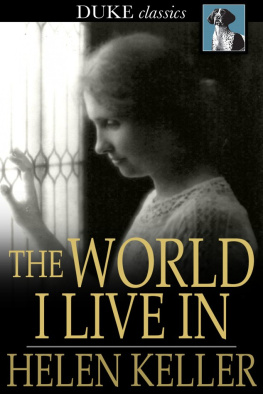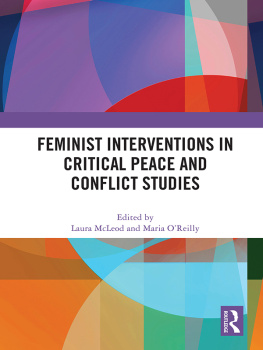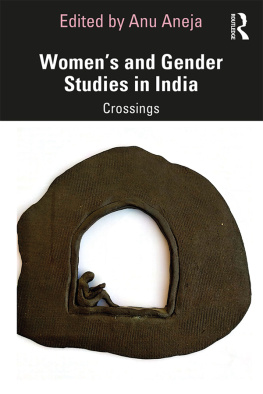
An Intergenerational Feminist Media Studies
Feminism and generation are live and ideologically freighted issues that are subject to a substantial amount of media engagement. The figure of the millennial and the baby boomer, for example, regularly circulate in mainstream media, often accompanied by hyperbolic and vitriolic discourses and effects of intergenerational feminist conflict. In addition, theories of feminist generation and waves have been, and continue to be, extensively critiqued within feminist theory. Given the compelling criticisms directed at these categories, we ask: why bother examining and foregrounding issues of generation, intergeneration, and transgeneration in feminist media studies? While remaining skeptical of linearity and familial metaphors and of repeating reductive, heteronormative, and racist versions of feminist movements, we believe that the concept of generation does have critical purchase for feminist media scholars. Indeed, precisely because of the problematic ways in which it is used, and its prevalence as a volatile, yet only too palpable, organizing category, generation is in need of continual critical analysis, and is an important tool to be usedwith care and nuancewhen examining the multiple routes through which power functions in order to marginalize, reward, and oppress.
This book covers a range of media forms: film; games; digital media; television; print media; and practices of media production, intervention, and representation. The contributors explore how figures at particular stages of lifeparticularly the girl and the aging womanare constructed relationally and circulate within media, with particular attention to sexuality. The book emphasizes exploring the ways in which the category of generation is mobilized in order to gloss sexism, racism, ageism, class oppression, and the effects of neoliberalism.
The chapters in this book were originally published as a special issue of Feminist Media Studies.
Jessalynn Keller is an Assistant Professor in the Department of Communication, Media & Film at the University of Calgary, Canada. She is author of Girls Feminist Blogging in a Postfeminist Age (Routledge 2015) and co-editor of Emergent Feminisms: Complicating a Postfeminist Media Culture (Routledge 2018). Her research on feminist digital cultures, girls media, and celebrity has been published in Feminist Media Studies, Continuum: Journal of Media & Cultural Studies, Information, Communication & Society, and the Journal of Gender Studies, as well as in several edited collections.
Jo Littler is the author of Against Meritocracy: Culture, Power and Myths of Mobility (2017) and Radical Consumption? Shopping for Change in Contemporary Culture (2008). She is editor of The Politics of Heritage: The Legacies of Race (with Roshi Naidoo, 2005) and Cultural Studies and Anti-Consumerism (with Sam Binkley, 2011).
Alison Winch is the author of Girlfriends and Postfeminist Sisterhood (2013). She is currently co-authoring a book with the title The New Patriarchs of Silicon Valley: Power, Celebrity and Digital Culture.
An Intergenerational Feminist
Media Studies
Conflicts and Connectivities
Edited by
Jessalynn Keller, Jo Littler and Alison Winch
First published 2018
by Routledge
2 Park Square, Milton Park, Abingdon, Oxon, OX14 4RN, UK
and by Routledge
711 Third Avenue, New York, NY 10017, USA
Routledge is an imprint of the Taylor & Francis Group, an informa business
2018 Taylor & Francis
All rights reserved. No part of this book may be reprinted or reproduced or utilised in any form or by any electronic, mechanical, or other means, now known or hereafter invented, including photocopying and recording, or in any information storage or retrieval system, without permission in writing from the publishers.
Trademark notice: Product or corporate names may be trademarks or registered trademarks, and are used only for identification and explanation without intent to infringe.
British Library Cataloguing in Publication Data
A catalogue record for this book is available from the British Library
ISBN13: 978-1-138-56348-3
Typeset in MyriadPro
by diacriTech, Chennai
Publishers Note
The publisher accepts responsibility for any inconsistencies that may have arisen during the conversion of this book from journal articles to book chapters, namely the possible inclusion of journal terminology.
Disclaimer
Every effort has been made to contact copyright holders for their permission to reprint material in this book. The publishers would be grateful to hear from any copyright holder who is not here acknowledged and will undertake to rectify any errors or omissions in future editions of this book.
Contents
Alison Winch, Jo Littler and Jessalynn Keller
Deborah Jermyn
Gina Marchetti
Rosalind Gill
Eva Krainitzki
Alison Harvey and Stephanie Fisher
Nithila Kanagasabai
Leslie Paris
Dana Edell and Lyn Mikel Brown (with Celeste Montano)
Rene Penney
Rosalind Gill, Hannah Hamad, Mariam Kauser, Diane Negra and Nayomi Roshini
The chapters in this book were originally published in Feminist Media Studies, volume 16, issue 4 (August 2016). When citing this material, please use the original page numbering for each article, as follows:
Alison Winch, Jo Littler and Jessalynn Keller
Feminist Media Studies, volume 16, issue 4 (August 2016) pp. 557572
Deborah Jermyn
Feminist Media Studies, volume 16, issue 4 (August 2016) pp. 573589
Gina Marchetti
Feminist Media Studies, volume 16, issue 4 (August 2016) pp. 590609
Rosalind Gill
Feminist Media Studies, volume 16, issue 4 (August 2016) pp. 610630
Eva Krainitzki
Feminist Media Studies, volume 16, issue 4 (August 2016) pp. 631647
Alison Harvey and Stephanie Fisher
Feminist Media Studies, volume 16, issue 4 (August 2016) pp. 648662
Nithila Kanagasabai
Feminist Media Studies, volume 16, issue 4 (August 2016) pp. 663677
Leslie Paris
Feminist Media Studies, volume 16, issue 4 (August 2016) pp. 678692
Dana Edell and Lyn Mikel Brown (with Celeste Montano)
Feminist Media Studies, volume 16, issue 4 (August 2016) pp. 693709
Rene Penney
Feminist Media Studies, volume 16, issue 4 (August 2016) pp. 710725
Rosalind Gill, Hannah Hamad, Mariam Kauser, Diane Negra and Nayomi Roshini
Feminist Media Studies, volume 16, issue 4 (August 2016) pp. 726736
For any permission-related enquiries please visit:
http://www.tandfonline.com/page/help/permissions
Lyn Mikel Brown is Professor of Education at Colby College, USA, and is an activist and co-founder of SPARK. She is author of Meeting at the Crossroads: Womens Psychology and Girls Development (with Carol Gilligan, 2013). She has also written on relationships between girls anger and social class, and critiques media messages directed at both girls and boys. She is the co-founder of Hardy Girls Healthy Women, and creator of Powered By Girl, a media activism website for girls.










